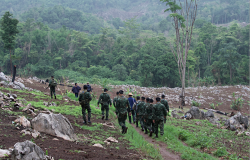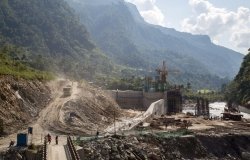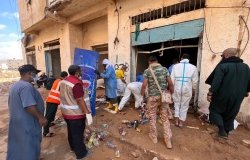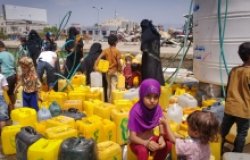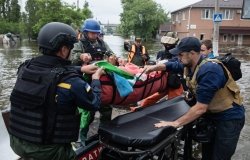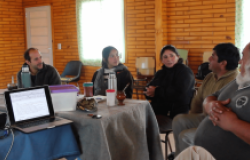ECSP, USAID Series Explores Health, Population, and Fragility
OCTOBER 2006—Meeting Videos, Summaries, Presentations Online
An ongoing Environmental Change and Security Program speaker series addresses the relationship between health and population issues and the evolving U.S. Agency for International Development (USAID) strategy for fragile states—now called Rebuilding Countries. Developed as an internal consultation with USAID's Office of Population and Reproductive Health (PRH), the series brings together practitioners interested in population, conflict, and fragile states from PRH, other USAID offices, implementing partners, and outside experts from the health-population-security field.
The series seeks to broaden understanding of health and populations issues as part of the problem and part of the solution to instability challenges, as well as foster debate about the correlations between fragility and population dynamics such as youth, sex ratios, differential population growth rates (within and between countries), population density, urbanization, and public health. "We are gleaning lessons from field-based service delivery in conflict and post-conflict zones— lessons for delivering the services to save and improve lives. But we are also working to understand how building health capacities in post-conflict zones might contribute to meeting broader stability and conflict prevention goals," said ECSP Director Geoff Dabelko.
Archived videos, summaries, and presentations will be made available to the public following each meeting. The following meetings are currently online:
- June 13—The Security Demographic: Assessing the Evidence;
- July 26—Securing Health: Lessons From Nation-Building Missions;
- September 12—Health Provision in Fragile Settings: A Stabilizing Force?;
- October 24—Mechanisms for Health Systems Management; and
- January 10—Measuring the Human Cost of War: Dilemmas and Controversies.
The 12th issue of the Environmental Change and Security Program Report features a Special Report on ECSP and USAID's Health, Population, and Fragility meeting series.
Related Program

Environmental Change and Security Program
The Environmental Change and Security Program (ECSP) explores the connections between environmental change, health, and population dynamics and their links to conflict, human insecurity, and foreign policy. Read more
